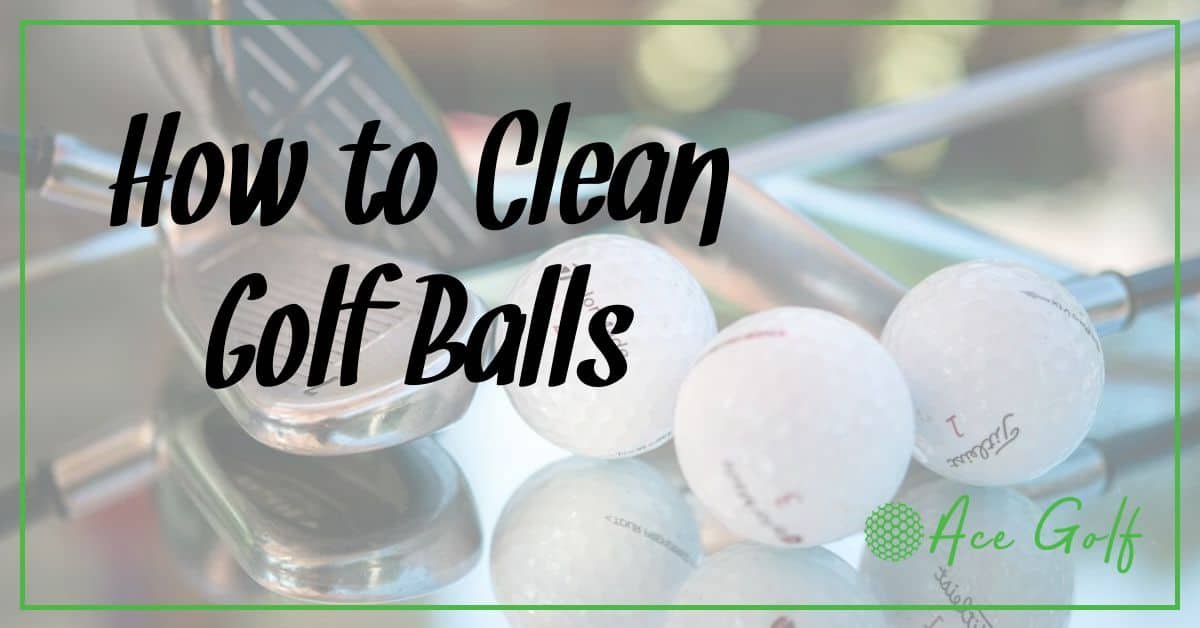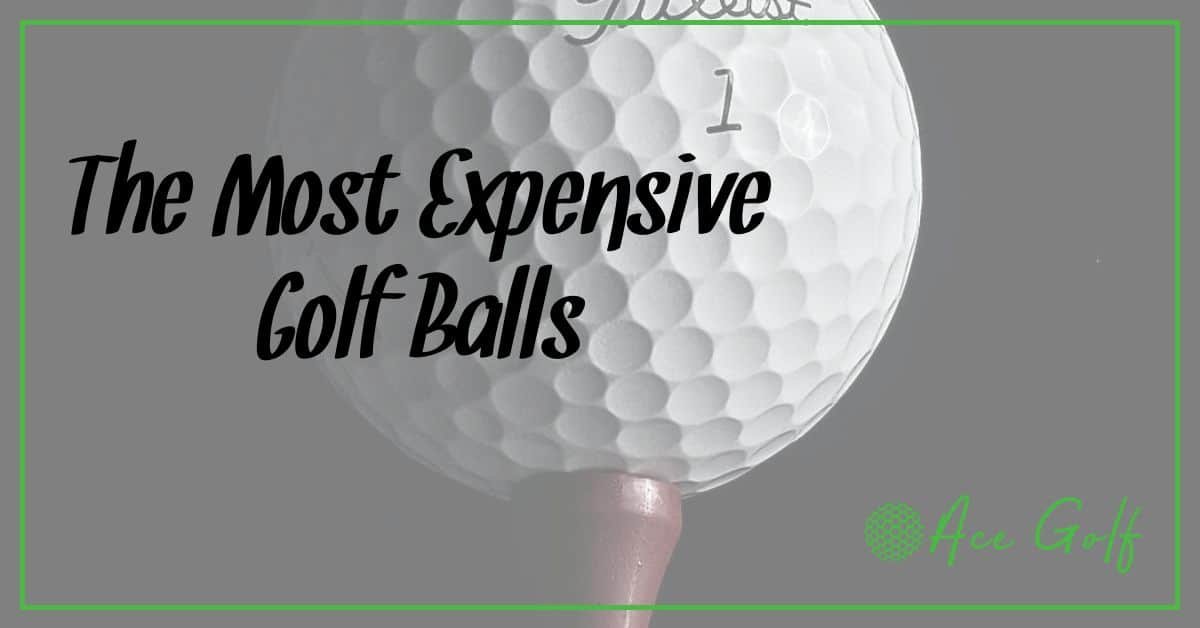Ever wondered why some golfers swear by soft golf balls? It’s not just a matter of preference; there’s science behind the choice. In this article, you’ll dive into the unique advantages of soft golf balls and how they can impact your game.

Whether you’re looking to improve your distance, enhance your control, or just enjoy a more satisfying feel upon impact, understanding the benefits of a soft golf ball can be a game-changer. Stick around to discover why going softer might be the best move for your golf game.
Understanding the Science Behind Soft Golf Balls
You might wonder why soft golf balls make such a difference to your game. It all boils down to core construction and material composition. Soft golf balls have a low compression rating, typically ranging from 40 to 60. This means they’re designed to deform more upon impact, which results in a greater transfer of energy from your swing to the ball.
The core of a soft golf ball is often made with a large, low-density rubber that helps maintain its shape while adding extra bounce. Surrounding the core, the cover material is usually a thin urethane or ionomer blend. This combination not only gives it a tender feel but also equates to less spin off the tee – helping you hit those straight, long drives you’re after.
Spin and Feel
- Low Spin for Drives: Soft golf balls tend to have lower spin rates when struck with a driver or woods. This low spin contributes to less aerodynamic resistance and can lead to increase in distance.
- Higher Spin with Wedges: Despite the low spin off the tee, these balls can offer higher spin rates on approach shots, granting you more control when you’re closer to the green.
Temperature Effects
Be mindful that temperature has a big impact on golf ball performance. Soft balls are particularly good in cooler conditions. When the mercury drops, harder golf balls become even less responsive. A soft golf ball, however, maintains its performance, ensuring that your cold-weather rounds don’t suffer.
In the summer’s heat, soft golf balls will feel even softer. So, it’s paramount to adjust your touch around the greens during these times. You’ll want to make sure you’re not over-hitting those delicate pitches or putts just because the ball feels like it’s melting into your clubface.
Keep these scientific insights in mind next time you’re selecting a ball for your round. The right choice can make all the difference in boosting your performance on the course.
Advantages of Using Soft Golf Balls
When you’re out on the course, every shot counts, and choosing the right golf ball can make all the difference. Soft golf balls are an excellent choice for a variety of reasons, particularly if you’re aiming to improve certain aspects of your game.
Feel and Control Around the Greens
With their lower compression, soft golf balls provide a better feel, which is vital when you’re on or around the greens. The enhanced feel leads to improved control, giving you the finesse needed for delicate shots:
- Chip shots are more responsive to touch
- Putting becomes more predictable as the ball rolls true to the line you’ve envisioned
More Forgiveness on Mishits
« Why Don’t I Hit the Golf Ball Far? Unlock Consistency for Longer Drives
Who Manufactures Golf Balls? Discover Top Brands & Hidden Gems »
Let’s face it, not every shot you strike is going to be perfect. Soft golf balls tend to be more forgiving when you don’t hit the sweet spot. The lower spin rate on tee shots means that the slices and hooks won’t be as severe, potentially keeping you in play when you might otherwise find yourself in trouble.
Better Performance in Varying Temperatures
Another benefit you’ll appreciate is how soft golf balls perform in different weather conditions. They tend to maintain a consistent feel across a broad temperature range:
- Retain soft feel in cooler conditions
- Don’t become overly hard in the summer heat
Ideal for Moderate Swing Speeds
If you don’t swing like the pros on tour, a soft golf ball can be a game-changer. Most golfers, especially amateurs with moderate swing speeds, will get more distance from a soft golf ball without sacrificing control.
Remember, while the market is flooded with various golf ball options, the key is to find the one that complements your individual style and prowess on the course. By focusing on these advantages, you might just pinpoint the reasons why a soft golf ball is an essential addition to your bag. Keep testing and tailoring your selection to your specific needs, and watch your game improve.
Distance: The Key Benefit of Soft Golf Balls
When you’re out on the course, every yard counts. That’s where soft golf balls come into play, offering a distinct advantage. Their construction allows for less compression, meaning you won’t need a pro-level swing speed to achieve impressive distance. The core of a soft golf ball is designed to activate with lower impact speeds, which is perfect if you’re not regularly hitting drive speeds of 100 mph.
The tech behind these balls means that folks with moderate swing speeds can still watch their ball soar, without feeling like they’re swinging out of their shoes. Plus, the ionomer covers on many soft golf balls help to minimize drag, giving you straighter long shots that are less likely to veer off into the rough.
Here’s a quick rundown of how soft golf balls can make a difference in your long game:
- Maximized Energy Transfer: On impact, a soft ball deforms more than a harder one. This means more energy is transferred from the club to the ball, resulting in further flight.
- Reduced Spin Rates: While playing a soft ball, you may notice a drop in spin on your drives and long irons. This reduction in backspin could be what you need to add those extra yards.
Let’s not overlook temperature. You might think performance is consistent across the board, but golf balls can transform with the thermometer’s rise and fall. Cold weather makes standard balls feel like rocks, sapping distance and making a smooth feel elusive. But a soft golf ball retains its pliancy and performance even when you’re teeing off in cooler conditions. This means you’ll have one less variable to worry about and you can stay focused on your shot making.
To sum it up, soft golf balls are a boon for your long game. Whether it’s the forgiving nature on mishits, the added distance, or consistent feel in all temperatures, incorporating these into your game could be a game-changer. Just remember, it’s about finding the right fit for your style of play – and if additional yards and straighter shots sound good to you, soft golf balls are certainly worth a swing.
Control: How Soft Golf Balls Improve Shot Accuracy
When you’re lining up for a shot, every element counts, and choosing the right golf ball can be as crucial as selecting the perfect club. With soft golf balls, you’ll notice your shots are more accurate, and here’s why. The lower compression of a soft golf ball means it deforms more on impact. This deformation leads to a larger contact area between the ball and the club face. Essentially, you get a tighter grip during that critical moment of impact, which can help straighten out your shots.
For you, as a skilled golfer, shot accuracy is paramount; you know that the game is won or lost around the greens. Soft golf balls provide the control needed to place the ball exactly where it needs to go. The softer feel aids in delicate chip shots, allowing you to gauge the distance with precision, while also offering a stable roll when you’re putting. It’s the touch you need for that gentle finesse, complementing your already fine-tuned skills.
Moreover, not only does the soft golf ball help with straight shots, but it’s also your ally when it comes to shaping shots. Its construction allows you to get creative—whether you’re drawing the ball into a tight pin position or fading it away from trouble. The soft golf ball reacts obediently to your intentional manipulations, providing feedback that’s immediate and, more importantly, reliable.
Should conditions turn windy, you’ll appreciate the reduced spin off the tee with a soft golf ball. This translates into less deviation from crosswinds. Your approach shots hold their line better, and that can make a significant difference on the scorecard. You know the importance of every single stroke and how controlling ball flight is fundamental in challenging conditions. With soft golf balls, you’re equipped to tackle whatever the course, or Mother Nature, throws at you.
The Feel Factor: Why Soft Golf Balls Can Enhance your Game
Imagine stepping onto the green, the cool morning dew still clinging to the grass beneath your feet. You line up your putt, look towards the hole, and take your shot. There’s a distinctive sensation when your putter makes contact with a soft golf ball – it’s like tapping a marshmallow with just enough spring to send it rolling towards the cup. That’s the feel factor at play, and it’s something that you’ve got to experience to truly appreciate.
Soft golf balls have a lower compression rating, meaning they deform more on impact. This deformation leads to a longer period of contact with the club face, providing you with better feedback and, essentially, a softer feel. This softer feel isn’t just about pleasure, though; it’s about precision. On the greens, where touch is paramount, having that elevated sense of control can be the difference between nailing the birdie putt or rimming out for par.
But it’s not just the putting green where feel comes into play. Your approach shots benefit too. A soft golf ball can offer a level of delicacy that allows you to attack pins with confidence. Hitting down on the ball and feeling it compress on the club face delivers an addicting sensation – and one that can be translated into pinpoint accuracy.
Your wedges will love the soft golf ball as well. It’s remarkable how a softer cover can give you the grip you need to generate that spin control to stop the ball on a dime. When you’re playing a course with fast greens or trying to navigate your way out of tricky bunkers, that extra bit of control is invaluable. And let’s not forget the crisp sound of a soft golf ball – it’s music to a golfer’s ears when struck just right.
As you progress through your round, you’ll find that using a soft golf ball encourages a smooth tempo, because you don’t need to overpower the ball to get the performance you’re after. It reinforces good swing habits, which is crucial for maintaining your low handicap. The soft golf ball is your ally, providing feedback and response, whether you’re shaping shots around the tree line or avoiding hazards that threaten to inflate your score.
When to Opt for Soft Golf Balls
As an experienced golfer, you know that choosing the right golf ball can be as crucial as selecting the perfect club. Soft golf balls might just be the game-changer you need when faced with certain conditions on the course.
First off, let’s talk about weather conditions. On those chilly mornings when the air is brisk and your breath forms clouds, the last thing you want is a rock-hard ball that feels like you’re hitting stone. Soft golf balls retain their pliancy in cooler temperatures, ensuring a consistent feel from tee to green.
Picture yourself facing a tight fairway or an imposing water hazard. If your natural shot shape includes a bit of a fade or draw, choosing a soft golf ball can help minimize unwanted spin and keep your shot on the intended line. Achieving that straighter flight is crucial to landing in the fairway and avoiding a swim for your ball.
Moving closer to the green, soft golf balls come into their own. You’re prepping for a delicate approach shot, and you need to drop the ball on a dime. With their superior control and spin regulation, soft golf balls enable you to land soft, stick it close, and dazzle your playing partners with your precise aiming.
Lastly, consider your swing speed. If you’re not consistently cranking out drives like the tour pros, don’t sweat it. These balls are ideal if you have a moderate swing speed. They’re engineered to compress more easily upon impact, which means that even with a less powerful swing, you can still see the distance numbers that’ll bring a grin to your face.
Remember, golf isn’t just brute force; it’s about finesse and making smart choices. Opting for soft golf balls in these situations can significantly enhance your control, shot accuracy, and overall performance, without needing to overhaul your swing. Keep these scenarios in mind the next time you’re restocking your golf bag.
Conclusion: Is a Soft Golf Ball Right for You?
You’ve seen the perks of playing with a soft golf ball. It’s about the feel and control you gain, especially when you’re close to the green. Remember, if you’ve ever been frustrated by errant shots, the forgiving nature of a soft ball might just be the game-changer you need. They’re not just for the pros but for anyone looking to add some finesse to their game. Whether you’re playing in the chill of early spring or the heat of summer, a soft golf ball keeps its composure, helping you maintain yours. So if your swing speed is on the moderate side and you’re after that elusive extra distance, a soft golf ball could be your ticket to a better game. Trust your instincts and consider how a soft golf ball could enhance your play. After all, the right ball can make all the difference.
Frequently Asked Questions
What are the main advantages of using soft golf balls?
Soft golf balls offer better feel and control, especially around the greens, making them ideal for more responsive chip shots and predictable putting. They’re also forgiving on mishits and provide consistent performance in various temperatures.
How do soft golf balls affect spin rate on tee shots?
Soft golf balls typically have a lower spin rate on tee shots, which helps reduce the severity of slices and hooks, thus improving a golfer’s overall accuracy and consistency.
Are soft golf balls suitable for golfers with any swing speed?
No, soft golf balls are particularly beneficial for golfers with moderate swing speeds because they activate with lower impact speeds, helping such players to achieve greater distance.
Can soft golf balls add distance to a golfer’s drive?
Yes, soft golf balls can add extra yards to drives and long irons due to their maximized energy transfer and reduced spin rates, which can help golfers achieve more distance.
Why might a golfer choose soft golf balls in cooler conditions?
Soft golf balls retain their pliancy and performance even in cooler conditions. This allows them to maintain a consistent feel and avoid becoming too hard, as some other balls might in lower temperatures.
Are soft golf balls good for tight fairways and water hazards?
Yes, soft golf balls can improve shot accuracy and control, which is particularly beneficial when playing on tight fairways or near water hazards, where precision is key.
Do soft golf balls offer any benefits for putting and approach shots?
Soft golf balls offer enhanced precision, control, and spin on approach shots, wedges, and putting, which allows golfers to place the ball more precisely on the green.










